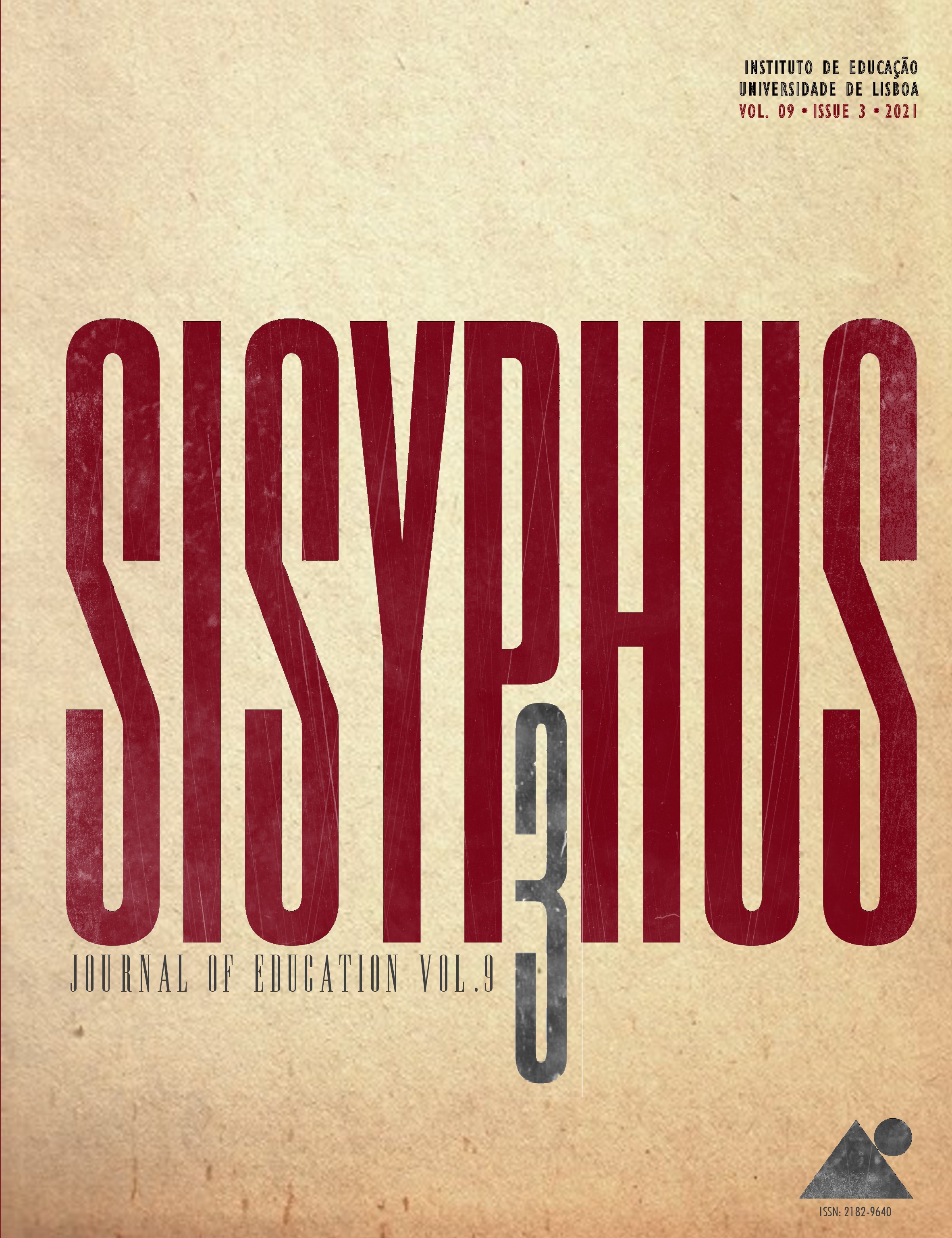Possibility of Educational Use of Facebook Zero in Higher Education
DOI:
https://doi.org/10.25749/sis.25316Keywords:
communication, higher education, students, internet, social networksAbstract
The use of social networks is part of the routine of most people, including higher education students. Due to limiting restrictions on internet access in Angola, Facebook Zero, a Facebook extension that allows user access without the cost of internet, has been an alternative means of network communication for many people. Thus, this study aimed to raise the possibility of using Facebook for educational purposes in higher education in Angola. The methodology of this research is in keeping with a quantitative perspective of an empirical-descriptive type. The results reveal that most participants were subscribers of at least one social network, with a higher incidence of the social network Facebook; on the other hand, the use of Facebook Zero, being free to access, easy to use and via mobile devices, can be leveraged for education, in a context of emergency education, as an incremental resource for promoting greater inclusion.
Downloads
References
Amaral, I. (2016). Redes sociais na internet: sociabilidades emergentes. Covilhã: Universidade da Beira Interior/Labcom.IFP. Retirado de: http://hdl.handle.net/1822/45388
Agência Brasil. (2018). Mais de 5 bilhões de pessoas usam aparelho celular. Retirado de: https://agenciabrasil.ebc.com.br/geral/noticia/2019-09/mais-de-5-bilhoes-de-pessoas-usam-aparelho-celular-revela-pesquisa
Agostinho, F. V., & Saveta, I. A. (2020). O Uso do Facebook Durante o Estado de Emergência pela COVID-19: Experiência Com os Estudantes de Geografia do Instituto Superior de Ciências da Educação de Benguela. Revista Angolana de Extensão Universitária, 2(3), 106-130.
Babbie, E. (1997). Survey research methods. (2ª Edition). Belmont, California: Wadsworth Publishing Company.
Barbante, C. J. S. (2018). A tecnologia educativa no ensino superior público na província do Huambo: caraterização e perspetivas de futuro. (Tese de Doutoramento). Universidade do Minho, Braga, Portugal. Retirado de: http://hdl.handle.net/1822/55804
Bogdan, R., & Biklen, S. (1994). Investigação Qualitativa em Educação – Uma introdução à teoria e aos métodos. Porto: Porto Editora.
Capobianco, L. (2010). Comunicação e literacia digital na internet: estudo etnográfico e análise exploratória de dados do Programa de Inclusão Digital AcessaSP-PONLINE (Tese de Doutoramento). Universidade de São Paulo, Brasil. DOI: 10.11606/D.27.2010.tde-16062010-110410
Castells, M. (2004). A Galáxia Internet Reflexos sobre Internet, Negócios e Sociedade. Lisboa: Fundação Calouste Gulbenkian.
Castells, M. (2020). O digital é o novo normal. In Fronteira do Pensamento. Retirado de: https://www.fronteiras.com/artigos/o-digital-e-o-novo-normal
Coutinho, C. P. (2014). Metodologia de Investigação em Ciências Sociais e Humanas. Lisboa: Almedina.
Eison, J. (2010). Using active learning instructional strategies to create excitement and enhance learning. Jurnal Pendidikantentang Strategi Pembelajaran Aktif (Active Learning) Books, 2(1), 1-10.
Facebook. (2020). Facebook Reports First Quarter 2020 Result. Retirado de: https://investor.fb.com/investor-news/press-release-details/2020/Facebook-Reports-First-Quarter-2020-Results/default.aspx
Fernandes, L. (2011). Redes Sociais Online e Educação: Contributo do Facebook no Contexto das Comunidades Virtuais de Aprendentes. Retirado de: http://www.trmef.lfernandes.info/ensaio_TRMEF.pdf
Garcia, E., Elbeltagi, I. M., Dungay, K., & Hardaker, G. (2015). Student use of Facebook for informal learning and peer support. International Journal of Information and Learning Technology, 32(5), 286-299.
Global System for Mobile Communications Association. (2019). Publicações. Retirado de: https://www.gsma.com/latinamerica/pt-br/la-resources/
Internet World Stats. (2020). Internet Usage and Population Statistics Table for Africa. Retirado de: https://www.internetworldstats.com/africa.htm
Kelly, B. (2007). Introduction To Facebook: Opportunities and Challenges For The Institution. Retirado de: http://www.ukoln.ac.uk/web-focus/events/meetings/bath-facebook-2007-08/
Levy, M. (1997). Computer-assisted language learning: Context and conceptualization. Oxford: Oxford University Press.
Lorenzo, E. M. (2011). A utilização das redes sociais na educação: importância, recursos, aplicabilidade, dificuldades. Joinville/SC: Clube de Autores.
Marconi, M. D. A., & Lakatos, E. M. (2004). Metodologia científica. (Vol. 4). São Paulo: Atlas.
Mattar, J. (2013). Web 2.0 e redes sociais na educação. São Paulo: Artesanato Educacional.
Mazman, S. G., & Usluel, Y. K. (2009). The usage of social networks in educational context. World Academy of Science, Engineering and Technology, 49(1), 338-342. Retirado de: https://citeseerx.ist.psu.edu/viewdoc/download?doi=10.1.1.193.834&rep=rep1&type=pdf
Miranda, L., Morais, C., Alves, P., & Dias, P. (2011). Redes sociais na aprendizagem. Educação e tecnologia: reflexão, inovação e práticas. Retirado de: https://bibliotecadigital.ipb.pt/bitstream/10198/4687/1/EBook_RedesSociaisAprendizagem.pdf
Movicel. (2020). Facebook flex. Retirado de: https://movicel.co.ao/servicos/movi-mais.html#facebook-gratis
Olson, W. (2004). Triangulation in Social Research: Qualitative and Quantitative Methods Can Really Be Mixed. Retirado de: https://bibliotecadigital.ipb.pt/bitstream/10198/13055/3/livro_CAV-MO-MO.pdf
Patrício, M. R., & Gonçalves, V. (2010). Facebook: rede social educativa? Retirado de: http://hdl.handle.net/10198/3584
Prince, M. (2004). Does active learning work? A review of the research. Journal of engineering education, 93(3), 223-231.
Programa das Nações Unidas para o Desenvolvimento. (2020). Taxa de alfabetismo em Angola. Retirado de: https://www.ao.undp.org
Rosa, J. P. O. D., & Vital, R. A. D. (2017). The use of Facebook in argumentative writing: towards an instructional design model. AsTEN Journal of Teacher Education, 1(2). Retirado de: http://po.pnuresearchportal.org/ejournal/index.php/asten/article/view/306
Santos Neto, J. A. D., & Almeida Júnior, O. F. D. (2017). Bibliotecas universitárias das instituições estaduais de ensino superior paranaenses e a mediação da informação no facebook. RDBCI: Revista Digital de Biblioteconomia e Ciência da Informação, 15(2), 442-468.
Saramago, J. (2016). Ensaio sobre a Cegueira. Lisboa: Leya, SA.
Sousa, M. J., & Baptista, C. S. (2012). Como fazer investigação, dissertações, teses e relatórios: Segundo Bolonha. Lisboa: Pactor.
Teixeira, M., & Ramos, A. (2019). O grupo virtual do Facebook no ensino da disciplina de Informática Aplicada. Retirado de: http://hdl.handle.net/1822/63395
Tess, P. A. (2013). The role of social media in higher education classes (real and virtual) – a literature review. Computers in Human Behaviour, 29, 60-68.
Unitel. (2020). Facebook zero. Retirado de: https://www.unitel.ao/particulares/servicos/
Xavier, R. F. A. de A. (2016). Participação estudantil no Facebook: processos, modalidades e motivações. (Tese de Doutoramento). Universidade do Minho, Braga, Portugal. Retirado de: http://hdl.handle.net/1822/41523
Downloads
Published
Issue
Section
License
Copyright (c) 2021 Sisyphus — Journal of Education

This work is licensed under a Creative Commons Attribution-NonCommercial 4.0 International License.
Copyright (c) belongs to Sisyphus - Journal of Education. However, we encourage issued articles to be published elsewhere, provided that Sisyphus authorization is asked for and that authors integrate our original source citation and a link to our website.
Author Self-Archiving Policy
Author(s) are permitted to self-archive the final published version in institutional or thematic repositories, and in their personal or institutional websites.
DORA Signer
The Instituto de Educação da Universidade de Lisboa, Sisyphus' Publisher, is a San Francisco Declaration on Research Assessment signer.






